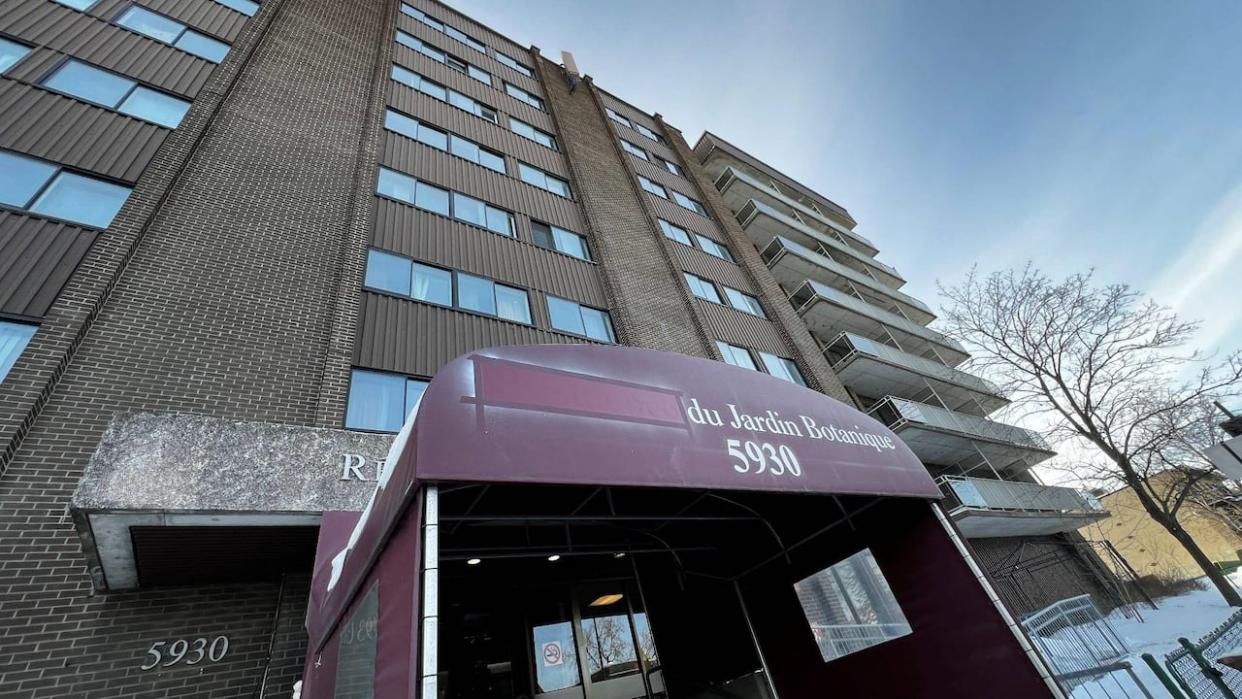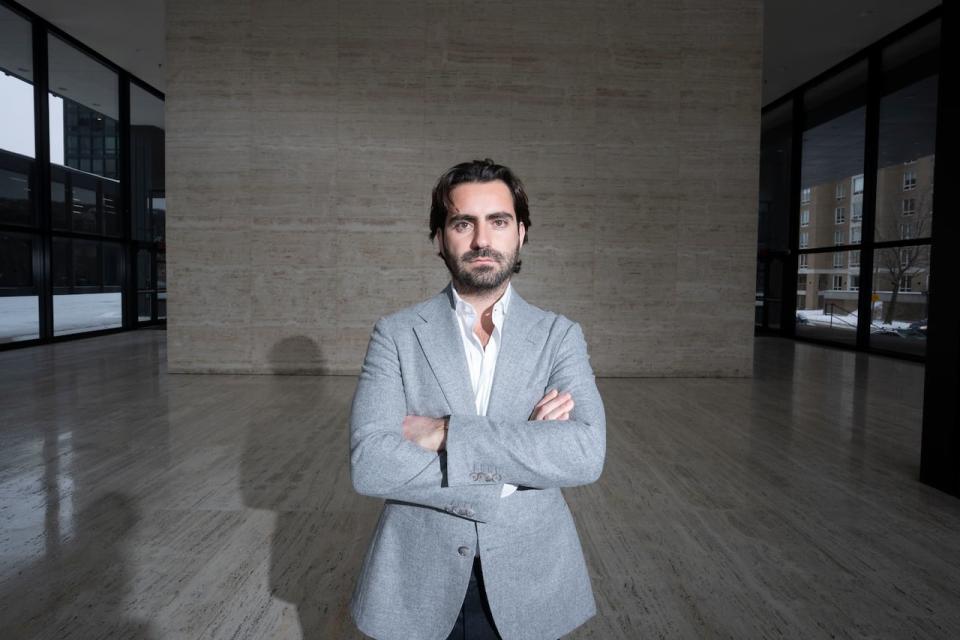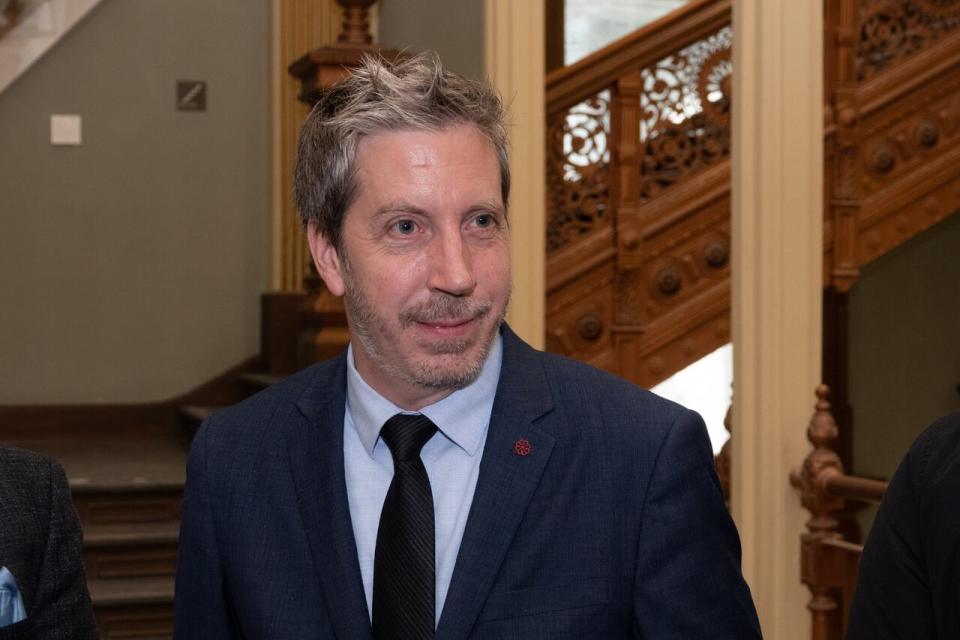Another private seniors' home to shut its doors in Montreal

About 62 seniors at the Résidence Jardin Botanique have been officially informed that their private seniors' residence (RPA) will close mid-August.
The health and social resources that take up the first two floors will also close.
The word "residence" has already been removed from the eight-storey building, built in the 1970s, which is located near Montreal's Olympic Stadium.
Kevin Hazout, the owner since 2021, told Radio-Canada the closure is due to staff shortages and the renewal of his mortgage. He said his loans are coming due soon and the financial institution "doesn't want to renew the loan if it's an RPA."
He said he wasn't able to get loans from other institutions and wasn't able to sell the RPA despite trying "on several occasions."

Kevin Hazout, who owns the Résidence Jardin Botanique, says he wants to convert the RPA into residential units. (Ivanoh Demers/Radio-Canada)
Hazout said he has also faced difficulties recruiting staff and attracting new residents. He now wants to convert the building into rental units.
"From this bad news, the good news is that we'll be able to put these units back on the market and fill a certain need in the east end of Montreal," said Hazout.
He stresses that his goal is to "have affordable housing, not major renovations." His units, mostly 2-and-a-halfs and 3-and-a-halfs, go for about $1,000 per month, and Hazout intends to keep them in the same price range.
Conversion not allowed
The borough of Rosemont-La Petite-Patrie adopted changes to its zoning bylaw in the fall of 2022, prohibiting conversions of RPAs into another type of dwelling.
The decision was taken in the wake of the attempted conversion of the Mont-Carmel RPA near downtown Montreal, which caused a stir and was met with resistance from residents.
"We were all shocked to see seniors threatened with being deprived of health services in their place of residence," said Montreal Mayor Valérie Plante at the time.
A spokesperson for Hazout said the team had just become aware of the regulation and that the company would proceed with a "closure" and then follow up over the coming months. Hazout's team has been in touch with the borough.
Judith Gratton Gervais, a spokesperson for Rosemont-La Petite-Patrie, said owners who start conversion work without a permit can face fines of at least $2,000 "which can be issued repeatedly until the building's situation is back to normal."
"Fines can therefore be issued every day the infraction continues," said Gervais.

François Limoges, the Rosemont-La Petite-Patrie mayor, said the borough would not give Hazout the necessary permits to convert the RPA into residential units. (Radio-Canada)
Plante told reporters Wednesday that it's "abominable" for a landlord to kick people, especially seniors, out of their homes.
She said the city is calling on the provincial government for better regulations.
"We're trying to put pressure to prevent massive transformations like what we saw in the Ville-Marie borough ... We have to do everything we can as a city to protect our seniors."
François Limoges, the Rosemont-La Petite-Patrie mayor, said at the same news conference that the borough would not give Hazout the necessary permits.
"We adopted the bylaw because we wanted to end 'flipping' culture that puts vulnerable people in the street," he said.
But the Regroupement québécois des résidences pour aînés (RQRA) has spoken out against the bylaw, saying it erodes the residential offer for seniors and will contribute to landlords abandoning their projects for seniors' residences.
Need for resources
Sonia Bélanger, the Quebec minister responsible for seniors, said the situation is "extremely preoccupying" and she understands it can "really stress out seniors."
She says the provincial government has injected over $350 million to support RPAs in the last few years. Despite these measures, RPAs are still closing. Bélanger says conversations are underway with the RQRA to find solutions, which could include paying for various services like health care.
But she says money can only go so far if there's a lack of organization within RPAs.
At the moment, the Jardin Botanique has 62 RPA residents, 42 residents that need intermediate resources and 44 non-RPA tenants, out of a capacity of 150 units. All residents will have to be relocated over the next few months to meet their needs, particularly those who were accommodated with intermediate resource services.

Sonia Bélanger, Quebec's Minister responsible for seniors, says the closure of RPAs can be extremely stressful for seniors and she is working on solutions. (Jacques Boissinot/The Canadian Press)
"We're working closely with the CIUSSS and rental agencies to find them alternative accommodation quickly," said Hazout.
"We've also talked to other residences about moving them."
He says it would be impossible to continue housing them outside the RPA as "they're all tenants who need services."
In the provincial RPA register, Résidence Jardin Botanique is registered as a category 3 RPA for semi-autonomous residents. Services include personal assistance, nursing care, domestic help, meals and recreation.
$17.5M acquisition
According to public information gathered by Radio-Canada, the building was bought for $17.5 million in 2021 by a firm owned in part by Black Ridge, formerly Hazout Groupe.
Hazout is president of the real estate group "specialized in the acquisition of undervalued multifamily properties."
"Our goal is to maximize the value of our real estate holdings and generate solid returns for our investors," says the company.
On the LinkedIn social network, Mr. Hazout states that he manages and owns over 5,000 housing units in Canada. In an interview, he says he mainly offers real estate asset management services and owns "a few doors."
Hazout has made headlines on a number of occasions in recent years, notably in connection with rent increases.
This announcement comes at a time when RPA openings in Quebec are no longer making up for closures, and when 2,500 seniors were forced to relocate in 2023 due to RPA closures. It's become a hot topic at the National Assembly.


